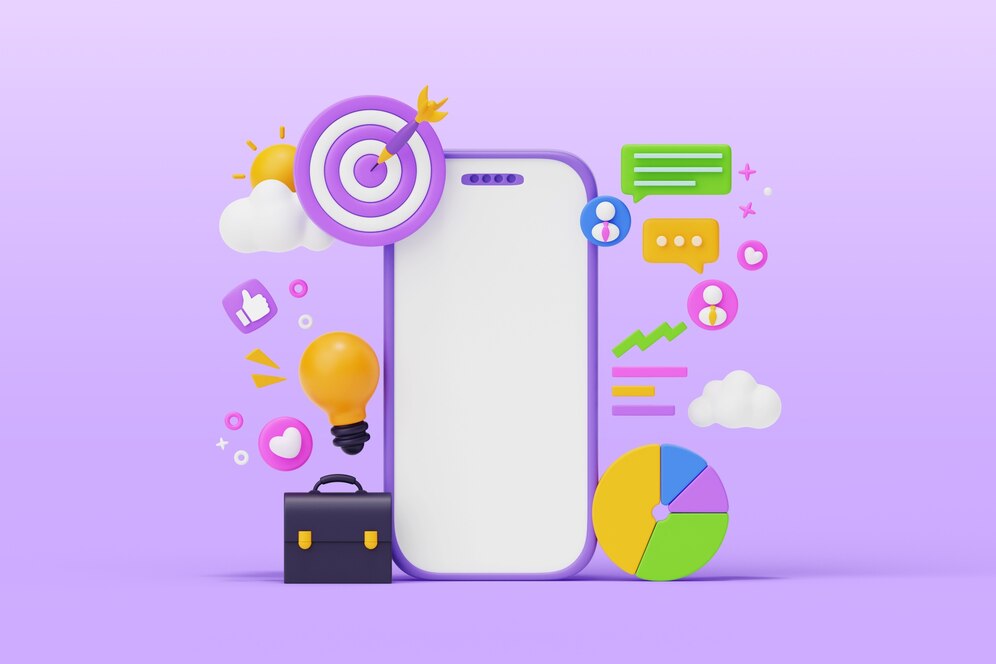Digital marketing is undergoing a profound transformation due to Artificial Intelligence (AI). From hyper-personalization and predictive analytics to automated customer service and content creation, AI empowers marketers to design smarter, data-driven campaigns that deliver real results. With the right tools and strategies, even small businesses can harness AI to compete with larger brands, improve ROI, and enhance customer experiences.
In this blog, we’ll explore how AI is being used in digital marketing, review some powerful tools available today, and offer actionable tips to make your campaigns smarter and more effective.
The Role of AI in Digital Marketing
AI in digital marketing refers to the simulation of human intelligence in machines programmed to think, learn, and make decisions. It enables marketers to:
- Analyze vast data sets quickly and accurately
- Automate repetitive tasks
- Predict user behavior and preferences
- Personalize experiences in real-time
- Optimize ad targeting and spend
Let’s look at some areas where AI is making a significant impact.
1. Personalized Customer Experiences
One of AI’s strongest suits is personalization. Tools powered by AI analyze data such as browsing history, purchase behavior, and engagement patterns to deliver tailored content, product recommendations, and ads to individual users.
Example:
Amazon and Netflix use AI-driven recommendation engines to offer personalized suggestions, improving user engagement and retention. You can apply similar technology using tools like Dynamic Yield or Optimizely for your e-commerce or content-driven site.
2. Chatbots and Virtual Assistants
Chatbots and virtual assistants powered by AI are changing the landscape of customer service. They handle queries instantly, offer product suggestions, and even process orders — 24/7.
Popular tools:
- Drift – Conversational marketing chatbot for lead generation
- Intercom – AI-powered customer support and engagement
- Tidio – Affordable chatbot for small businesses
These tools enhance user experience, reduce bounce rates, and capture leads effectively.
3. AI in Content Creation
Content creation is time-consuming, but AI tools can assist or even automate parts of the process.
Examples:
- ChatGPT or Jasper AI – Generate blog posts, ad copy, and product descriptions
- Copy.ai – Write marketing content with AI assistance
- Grammarly – AI-driven grammar and style adjustments for refined writing
Although human oversight is essential, these tools can drastically improve productivity and content output.
4. Predictive Analytics and Data Insights
AI helps marketers make better decisions with predictive analytics. It identifies patterns in data to forecast trends, customer behavior, and campaign performance.
Key tools:
- HubSpot and Salesforce – Use AI to score leads and predict sales outcomes
- Google Analytics 4 (GA4) – Employs AI for predictive metrics like purchase probability
These insights allow marketers to allocate resources wisely and craft strategies that resonate.
5. Smarter Ad Targeting
AI can optimize advertising by analyzing user data in real time and adjusting bids, creatives, and targeting parameters dynamically.
Top platforms:
- Google Ads Smart Bidding – Uses machine learning to optimize conversions
- Facebook Advantage+ Campaigns – AI-driven targeting and creative delivery
- Adzooma – AI-powered ad management and optimization tool
These platforms help reduce wasteful spending and increase ad performance.
6. Email Marketing Automation
AI brings precision to email marketing through segmentation, predictive send times, and personalized content.
Tools to try:
- Mailchimp – Uses AI for send-time optimization and content personalization
- Sendinblue – Offers automated workflows with AI-based triggers
- Moosend – Affordable platform with smart segmentation features
The result? Higher open rates, better engagement, and improved customer retention.
7. Visual Recognition and Image Optimization
AI-powered image tools help in analyzing, tagging, and optimizing visuals for search and social media.
Examples:
- Canva’s Magic Studio – Uses AI for design suggestions and photo edits
- Remove.bg – Instantly removes image backgrounds with AI
- Google Vision AI – Analyzes images for brand safety and metadata enhancement
Optimizing visuals with AI improves accessibility, SEO, and user experience.
Tips for Running Smarter Campaigns with AI
1. Start Small and Scale Up
Begin by using AI for specific tasks like email automation or customer segmentation. Gradually expand as you see positive results.
2. Use Data Ethically
AI thrives on data, but it’s vital to respect privacy laws (like GDPR and CCPA). Always get consent and be transparent about data usage.
3. Blend AI with Human Creativity
While AI can automate and optimize, human input remains essential for storytelling, branding, and emotional resonance.
4. Track and Test Continuously
AI tools improve with feedback. A/B test your campaigns, monitor analytics, and refine your approach based on real-world results.
5. Educate Your Team
Train your marketing team on how to use AI tools effectively. Understanding the strengths and limits of AI is key to leveraging it well.
Future Trends: Where AI in Digital Marketing Is Headed
As AI continues to evolve, expect to see:
- Deeper personalization with zero-party data
- Voice and visual search optimization
- AI-generated video content
- Smarter influencer marketing platforms
- Augmented reality experiences powered by AI
Adopting AI today positions your business to stay competitive in a rapidly evolving digital landscape.
Conclusion
AI is no longer a luxury in digital marketing — it’s a necessity. It enables marketers to operate more efficiently, connect with audiences meaningfully, and make data-driven decisions with confidence. By leveraging the right tools and following strategic tips, you can run smarter campaigns that drive engagement, conversions, and growth.
Whether you’re a startup or an established brand, now is the time to explore how AI can power your digital marketing success.


Leave a Reply